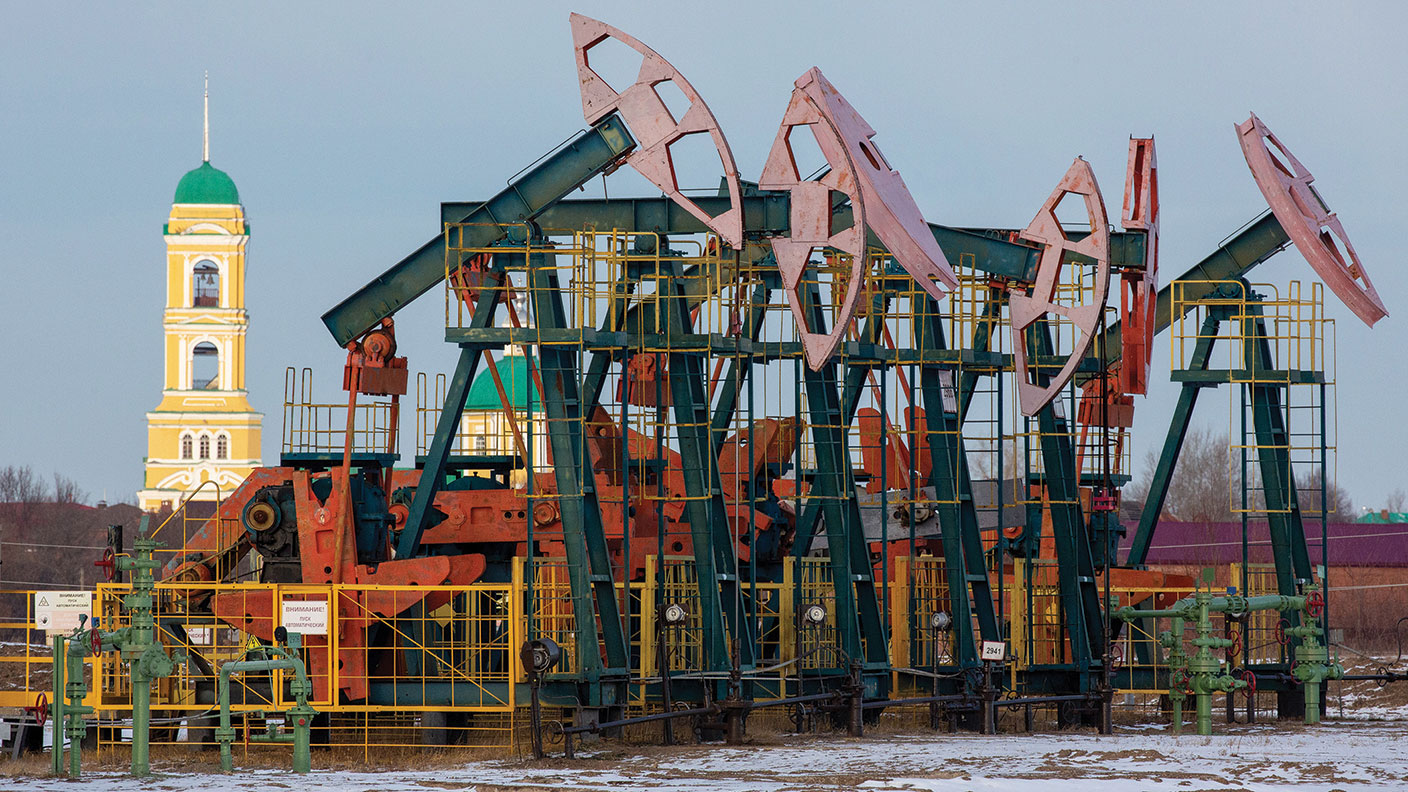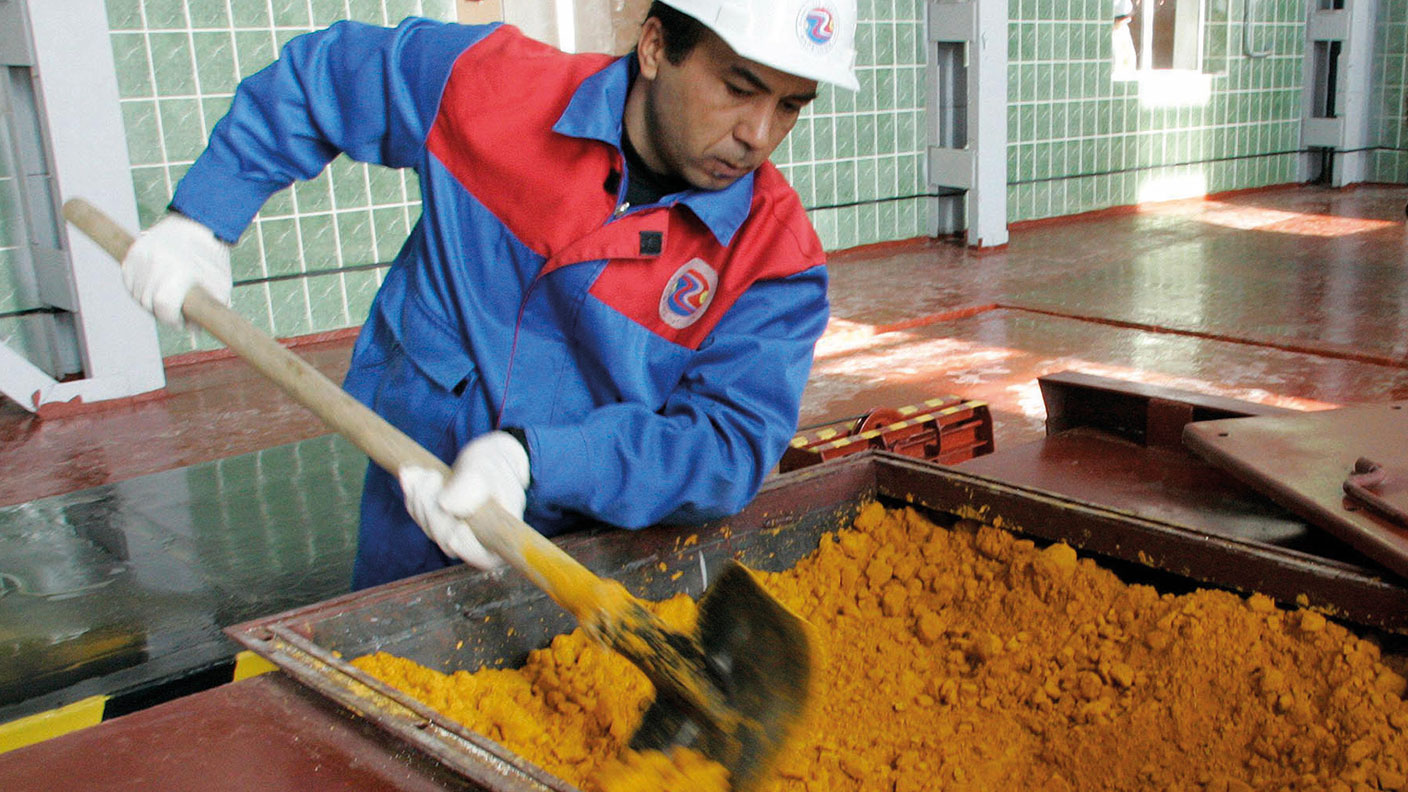Commodities make a comeback
Raw-materials prices rose sharply in 2017 – and they have made a strong start to 2018, too.

Get the latest financial news, insights and expert analysis from our award-winning MoneyWeek team, to help you understand what really matters when it comes to your finances.
You are now subscribed
Your newsletter sign-up was successful
Want to add more newsletters?

Twice daily
MoneyWeek
Get the latest financial news, insights and expert analysis from our award-winning MoneyWeek team, to help you understand what really matters when it comes to your finances.

Four times a week
Look After My Bills
Sign up to our free money-saving newsletter, filled with the latest news and expert advice to help you find the best tips and deals for managing your bills. Start saving today!

Raw-materials prices rose sharply in 2017, and they have made a strong start to 2018 too. The Bloomberg Commodity Spot index, a broad gauge of the sector, has jumped to its highest level since 2014, and the outlook remains favourable. Factories across the world are warning that they are struggling to keep up with demand now that the global economy is finally beginning to fire on all cylinders, says Fergal O' Brien on Bloomberg. Global growth could reach 4% in 2018, reckon analysts at JPMorgan Chase, while its worldwide composite gauge of manufacturing surveys is at its highest level since 2011.
On the supply side, oil and mining groups have cut spending to lower debt and return cash to shareholders; in the oil market, sentiment has turned more bullish now that the pact between oil-cartel Opec and Russia to cut output to mop up the glut appears to be holding. Oil, now nudging $70 a barrel for the first time in three years, is a large part of most commodity indices, reinforcing the growing confidence among commodities investors in general.
The usual cyclical lags are also playing a part, says Jon Yeomans in The Daily Telegraph. Chinese demand is pivotal for metals, and a clampdown on credit there in 2014 squeezed growth and dented miners' profits. Scarred by that experience, miners have cut back on exploration, so new supplies won't arrive quickly.
MoneyWeek
Subscribe to MoneyWeek today and get your first six magazine issues absolutely FREE

Sign up to Money Morning
Don't miss the latest investment and personal finances news, market analysis, plus money-saving tips with our free twice-daily newsletter
Don't miss the latest investment and personal finances news, market analysis, plus money-saving tips with our free twice-daily newsletter
China is again trying to temper debt growth, so its appetite for raw materials will fall this year, while continued US growth could bolster the dollar, always a headwind for commodities as they're priced in dollars. But these factors are unlikely to outweigh robust global growth and tight supply, so the best guess is that the commodities upswing of the past 18 months will endure in 2018.
Get the latest financial news, insights and expert analysis from our award-winning MoneyWeek team, to help you understand what really matters when it comes to your finances.

-
 Should you buy an active ETF?
Should you buy an active ETF?ETFs are often mischaracterised as passive products, but they can be a convenient way to add active management to your portfolio
-
 Power up your pension before 5 April – easy ways to save before the tax year end
Power up your pension before 5 April – easy ways to save before the tax year endWith the end of the tax year looming, pension savers currently have a window to review and maximise what’s going into their retirement funds – we look at how
-
 Is the market missing the opportunity in energy?
Is the market missing the opportunity in energy? -
 The demand for oil is slowing and green energy is taking over
The demand for oil is slowing and green energy is taking overThe IEA forecasts oil demand growth to slow sharply in the next few years. The end of the era may be underway.
-
 Fuel prices could rise again as Opec cuts production
Fuel prices could rise again as Opec cuts productionNews Major oil-producing countries have decided to cut oil production by two million barrels per day – could this mean higher fuel prices?
-
 Why is the petrol price rising again?
Why is the petrol price rising again?Brits are being hit by a triple-whammy of increasing oil prices, a falling pound, and new fuel mix standards that are pushing up petrol prices
-
 How to invest in copper, the most important metal in the world
How to invest in copper, the most important metal in the worldCover Story As the world looks to electrify and try to move away from fossil fuels, copper looks set to be the biggest beneficiary. But how can you invest? Rupert Hargreaves analyses the sector.
-
 Oil shortage starts to curb demand
Oil shortage starts to curb demandNews The price of Brent crude oil is up by 475% since its March 2020 low. And when oil prices rise, people start to reduce consumption, leading to increased fears of a recession.
-
 An uncertain outlook for oil supply
An uncertain outlook for oil supplyNews Much of the speculative froth seems to have gone from the oil market, but sanctions on Russia is disturbing the crude oil supply.
-
 Why the uranium price is set to keep rising
Why the uranium price is set to keep risingNews Turmoil in Kazakhstan – the world's leading producer of uranium, has sent the uranium price up by more than 8% in a week. And that's not the end of it.